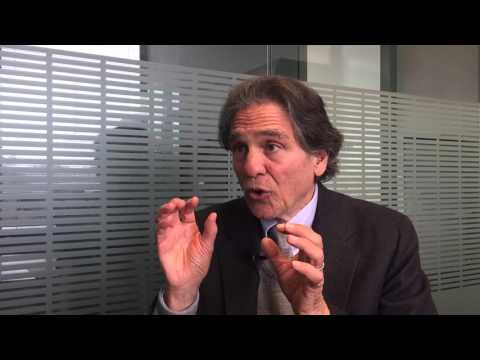Hi I’m Ted Kaptchuk. I’m a Professor of Medicine at Harvard Medical School. And I’m Director, of the Program in Placebo Studies and the Therapeutic Encounter, which is hosted at the Beth Israel Deaconess Medical Center. What is placebo? And what is the placebo effect. A placebo is very easy to describe, it’s either a sugar pill or a cellulose pill. It’s a sham simulation of therapy. A placebo effect is sometimes called the effect of an inert substance, the effect of a sugar pill. That’s an oxymoron, it doesn’t make sense, the effect of something that has no effect. Actually what a placebo effect is, is a way of describing, quantifying, and understanding everything that surrounds those pills. The interaction between the patient and the provider, the symbols, the rituals, the pills that we take, the amount of support we get.
The placebo effect is about everything that’s not in the tool box, but is in the environment when we go and see a provider. What is the therapeutic encounter? When a person goes to a doctor, a nurse, an allied health professional, or complementary therapist, everyone thinks it’s the drug, or the moving of the hands, or the exercises we do, but in fact one of the major contributors to the outcome of what happens, what the major contributor to why a person feels better is the empathy, attention, emotional support, thoughtfulness, acts of decency, laying on hands that goes on between a patient and doctor or any other kind of therapist.
It’s feeling trust, feeling a bond that potentiates good medicines and makes them better. It’s a critical part of all health care. What should I know about the placebo effect when it comes to my health care decision-making? I think the bottom line is that the fact that cellulose or sugar pills can change how you feel suggests that there are lots of other things that can change how you feel. That we’re not locked in to complaints of pain, fatigue, headache, nausea. We’re actually, those symptoms change, sugar pills can change them, and looking for ways in your ordinary life that actually help you reduce those complaints, and avoid exacerbating those complaints is an important message. A second message is the placebo effect is not only about cellulose and sugar, it’s about the therapeutic encounter. Do you feel supported by your health care provider, do you feel understood, do you trust your health care provider, do you feel that he or she is on your side and they got your back.
Unless you feel that, that’s an important quality that you need to have in your health care. If you don’t feel that from your provider maybe think about changing it, because we know that the clinical interaction between patient and provider changes how you feel in important complaints..
